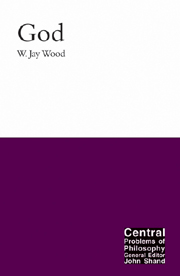Book contents
- Frontmatter
- Contents
- Introduction
- 1 Design arguments
- 2 Cosmological arguments
- 3 The ontological argument
- 4 The moral argument for God's existence
- 5 Religious experience and cumulative case arguments
- 6 Religious belief without evidence
- 7 The problem of suffering
- 8 The nature of God
- Conclusion
- Notes
- Bibliography
- Index
7 - The problem of suffering
- Frontmatter
- Contents
- Introduction
- 1 Design arguments
- 2 Cosmological arguments
- 3 The ontological argument
- 4 The moral argument for God's existence
- 5 Religious experience and cumulative case arguments
- 6 Religious belief without evidence
- 7 The problem of suffering
- 8 The nature of God
- Conclusion
- Notes
- Bibliography
- Index
Summary
John Rawls, author of A Theory of Justice, arguably the most influential treatment of the subject in the twentieth century, grew up a faithful Christian. His Christian convictions were fully on display in his undergraduate thesis at Princeton University, titled “A Brief Inquiry Into the Meaning of Sin and Faith”. His ardent faith foundered, however, by what he experienced as a soldier during the Second World War. Rawls (as so many others) was particularly troubled by the Holocaust. “How could I pray,” wrote Rawls, “and ask God to help me, or my family, or my country, or any other cherished thing I cared about, when God would not save millions of Jews from Hitler?” (Rawls 2009: 263). Rawls is but one of untold numbers of people whose commitment to classical theism has been severely challenged and even abandoned by the obvious incongruity between an all-loving, all-powerful, providential God and the world's pervasive pain and suffering. If an infinitely loving God has all power and knowledge at his disposal, could he not have thwarted the genocidal campaign of the Nazis? Surely it would pose no problem for the almighty to turn back a tidal wave or two, to prevent the AIDS virus from jumping to the human gene pool or, at the very least, to ensure that suffering does not befall innocent children and animals. The chief question we must wrestle with is whether or not the extent and severity of the world's suffering undermines the rational credibility of theism.
- Type
- Chapter
- Information
- God , pp. 155 - 186Publisher: Acumen PublishingPrint publication year: 2010

